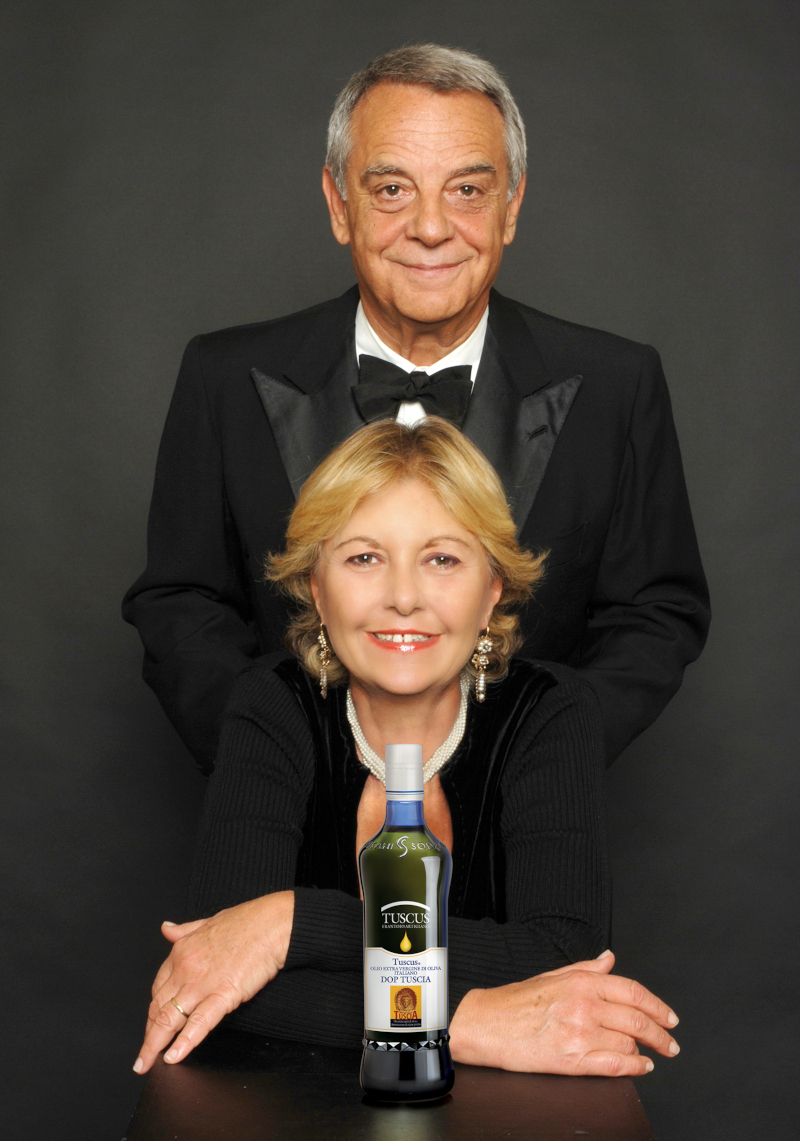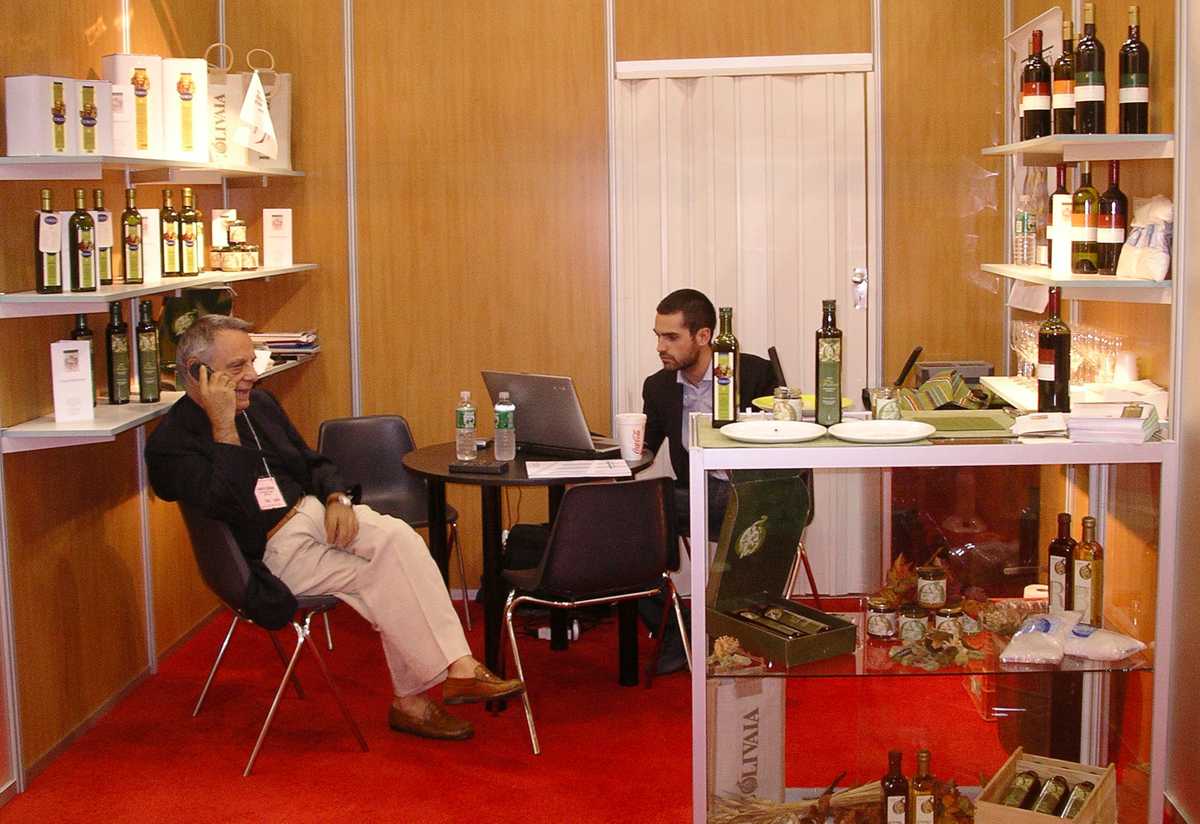CusaniSodano

Giampaolo Sodano, Oil Mill Master
Fabrizia Cusani, Blendmaster
CusaniSodano is L'Olivaia, the farm, where there is the olive grove, and Tuscus, the artisan oil mill where oil is made. Fabrizia Cusani and Giampaolo Sodano – she is an architect, town-planning expert and professor at Rome University La Sapienza, he is a journalist, General Manager of Italian TV and Deputy of Italian Parliament – who both, driven by a strong passion and will, chose to become olive oil craftsmen of quality after a lifetime spent in the Media, Communication and Cultural world. In 1992 they started planting olive trees: today the farm is an olive grove surrounded by the colors and scents of roses. Then in 1999 they acquired an old oil mill, founded in 1947, in order to complete the supply chain and to guarantee the quality of their products.
How we make our olive Oil
Mr. Giampaolo Sodano, Oil Miller Master
A good olive oil production is the result of mysterious balances. Not just the right climate, the right soil morphology, the variety of plants, but certainly the combination and balance between these different factors determines the quality. It’s correct to affirm that quality is born on the field, from the care with which in each season of each year we follow the growth of plants, their health, nourishment, the air they breathe. As used to happen for centuries, the olives arrive at the mill after a day of work beginning at dawn and ending at sunset. I try to weigh them myself taking care to divide them by cultivar, checking their ripening, knowing what kind of oil we want to get. Once the olives are weighed they are overturned in the tramogy, where a conveyor belt brings them to the defoliator and then to the washing machine. Once cleaned, the olives enter the crusher. Here ends my job that I take back to the storage room where I verify if the blend I made in the mill on the basis of the characteristics of the cultivars is correct or needs some adjustments to favor the taste and pleasure of my customers.
Prof. Fabrizia Cusani, Blendmaster
The modern oil mill transforms olives into pasta. This new technology allows me to intervene in the process by deciding, on the basis of the degree of ripening of the fruit and the particular characteristics of the cultivar, the speed of rotation of the oil mill and the capacity of incoming olives, thus determining some important organoleptic characteristics such as the hint of bitter and oil fruity. The pulp comes out from the oil mill and "slides" into the kneaders. A sweet warmth and an endless waltz welcomes the pasta, until the cells are dilated, the pasta becomes shiny and the first drops of oil begin to emit. I verify the temperature, never exceeding 27 degrees, because all the produced oil is cold extracted. Now it’s time to open the kneader and send the dough into the decanter, where the separation between the different elements takes place, a separation process by centrifugation on the basis of the different specific weight: so the oil separates from the core and from the water. It’s the final moment: the result of everything we have done before, from the cultivation of plants on the field, to the harvesting of the olives, to the tuning of the machines up to the quality of the oil. Like all craftsmen, I feel the responsibility for a well done job. We are in the final act: from the decanter the oil passes to the separator where the oily must, a mix of mucilage, water and oil, will be definitively purified "turning into" extra virgin oil.
Gabriele Cusani Sodano (Marketing Manager) con Giampaolo a New York
L’Olivaia
Olivaia is a monocultivar farm certified both organic and Tuscia DOP. It stretches over the hills of Tuscia, between the Roman amphitheatre of Sutri and the ancient Via Francigena and surrounded by four volcanic lakes. This area offers optimum soil and climatic conditions for the growth of the olive tree. The olive grove, covering over 18 hectares with its 7,000 olive trees, is organized by fields and by cultivars in order to facilitate the separate picking operations for Leccino, Frantoio, Maurino and autochthonous Caninese and Bolzone cultivars, which ripen in different periods and also to produce different oils of various flavour which depends on the blend. The rose bushes, planted at the beginning of spinning, give color and scents to the fields and signal the different cultivars.
Frantoio Tuscus
Along the ancient Via Cassia, which passes through the land of the Etruscans – between Rome, the “Eternal City”, and Viterbo, the “City of the Popes” – are situated the doors of the Tuscus Artisan Oil Mill, where the olives are transformed into extra virgin olive oil. The olive processing takes place in a large, modern environment. At first the olives are weighted and washed then they are pressed by a continuous-cycle system featuring the most advanced technology and an electronic temperature control system in every different phase of pressing; such systems guarantee a true cold-pressing process. Frantoio Tuscus is a craftsman mill where we produce extra virgin olive oils thanks to the local rich diversity of the varieties of autochthonous olives and we create, with the art of blending, excellent oils for the sake of the world’s consumers.
DOWNLOAD OUR E-BOOK
The Ethical Code
For Frantoio Tuscus ethics is intrinsic to the product and its processes. Honesty, transparency, innovation, social and environmental responsibility are the values in which Frantoio Tuscus identifies himself.
This identity has been reinforcing over the years becoming one of the fundamental resources of the company. Nowaday, the company's development and the complexity of the market in which it operates, make it necessary to clearly define the set of values in which Frantoio Tuscus identifies himself starting from the rigorous respect of human rights, consumers and children rights, the workers safety conditions and the environmental impact, even more than is required by laws and regulations. A fundamental mean for the business principles broadcasting is the Ethical Code.

